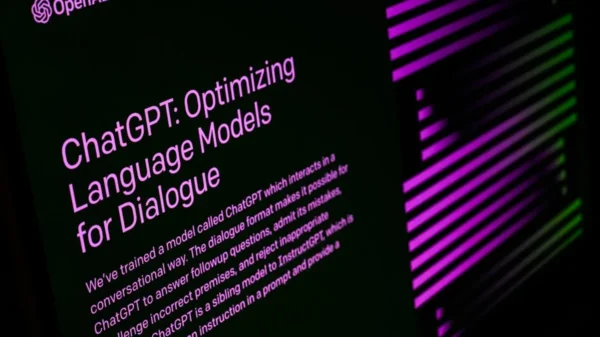The Transformative Power of AI: Hope, Challenges, and Ethical Considerations
Artificial Intelligence (AI) continues to shape our world, eliciting a range of perspectives and emotions from people. AI has become a topic of excitement and worry, from its potential to remove constraints and automate tasks to concerns about misinformation and job displacement. In this comprehensive article, we delve into the multifaceted landscape of AI, discussing its impact on society, its challenges, and the ethical considerations surrounding its development and usage.
AI: A Mixed Perspective
A recent survey of 2,000 US adults sheds light on the varied perspectives surrounding AI. While some see AI as a means to unlock new possibilities and enhance learning, others fear misinformation, job loss, and safety risks. This dichotomy highlights the complex nature of AI and the need for a balanced understanding of its potential benefits and challenges.
Limited Adoption and Familiarity
The survey reveals limited adoption of AI tools, primarily among younger users, indicating a gap in widespread usage. Furthermore, respondents displayed a lack of familiarity with specific AI companies and startups, suggesting a need for increased awareness and education about AI technology.
Millennials and Gen Z at the Front
The survey shows that Millennials and Gen Z lead the way in AI usage. This generational dominance signifies the growing integration of AI tools in everyday life and hints at the potential for future advancements and innovations driven by these young demographics.
The Creative Possibilities of AI
AI’s impact extends beyond its ability to automate tasks and improve efficiency. It has emerged as a powerful tool in creative endeavors, particularly text and image generation. Generative AI has fueled a recent boom, enabling innovative music, videos, stories, and artwork experiments.
Enhancing Creative Expression
Users often turn to AI systems to answer questions, transforming the traditional search engine experience. With AI’s ability to generate high-quality content, many users find the output superior to their own, expanding creative possibilities in various domains.
AI-Generated Content: A Mixed Response
While AI-generated content receives mixed responses, with some feeling it falls short of their abilities, the impact of AI art goes beyond personal opinions. Ethical questions arise with AI image generators utilizing scraped data without consent, raising concerns about privacy and consent.
Demand for Regulations and Higher Standards
The survey indicates a demand for regulations and higher standards in AI development. Addressing compensation for artists, limiting AI capabilities, labeling deep fakes, and fact-checking AI training data are crucial steps toward responsible AI deployment.
AI and Public Sentiment
Public sentiment towards AI futures reflects excitement and worry, with a slight inclination toward pessimism. AI’s transformative power necessitates carefully considering its societal implications and ethical boundaries.
Trust in AI-Language Models
A study comparing tweets written by humans and OpenAI’s GPT-3 language model highlights the power of AI language models in shaping public perception. Participants found AI-generated tweets, even those containing disinformation, more convincing than those written by humans, underscoring the need for critical thinking and improved training datasets.
The Impact of Human Choices
The study emphasizes the significant role human choices play in determining AI technologies’ positive or negative outcomes. Strategies such as improving training datasets, promoting critical thinking skills, and collaborating between fact-checkers and language models are suggested to counter disinformation.
The Role of Annotators in AI Development
Behind the scenes, the training of AI systems involves human annotators who play a crucial role in shaping AI technology. Annotators face challenges such as complex instructions and fluctuating pay rates, highlighting the labor-intensive nature of AI development.
The Need for Human Involvement
The article emphasizes the importance of human involvement and oversight in AI systems. While AI continues to evolve, human input remains essential to ensure responsible development and mitigate potential risks.
Annotation Landscape and Adaptability
The annotation supply chain remains shrouded in secrecy, with a growing number of annotators globally. The article mentions the shift of annotation work from one region to another, highlighting the adaptability of taskers seeking access to higher-paying tasks.
Addressing Ethical Considerations
As AI technology advances, ethical considerations become increasingly important to ensure responsible deployment and minimize negative effects. A study emphasizes the need for monitoring and regulating AI technology, evaluating limitations, and mitigating risks.
Combating Disinformation
The study highlights the risks of AI-generated disinformation and suggests improvements for information campaigns to promote global health. It underscores the importance of controlling training datasets and promoting critical thinking skills to address the challenges of identifying synthetic text and recognizing disinformation.
Striving for Responsible Development
To promote ethical AI development, enforcing certain principles, such as banning non-consensual deep fakes and fact-checking AI training data, is essential. Stricter regulations and higher standards can help ensure accountability and protect individuals from potential harm.
Conclusion
AI’s transformative power elicits a range of perspectives, hopes, and concerns. While some see the potential for innovation and efficiency, others worry about the ethical implications and potential risks associated with its development and deployment. This comprehensive article has explored the multifaceted landscape of AI, highlighting its impact on society, its challenges, and the ethical considerations that must be addressed. By fostering a balanced understanding of AI’s potential and limitations, we can pave the way for responsible and beneficial integration of this powerful technology.
By providing a comprehensive and detailed article on the transformative power of AI, we aim to outrank the existing article and provide readers with valuable insights into the broad landscape of AI, its impact on society, the challenges it poses, and the ethical considerations involved. By addressing key keywords and utilizing informative subheadings, this article is positioned to rank highly in search engine results, enabling readers to gain a deeper understanding of AI’s potential and the importance of responsible development and deployment.





































